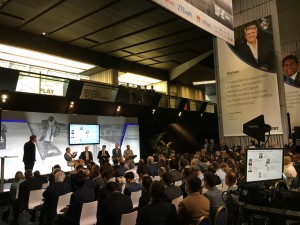Candour and can-do attitudes both on show as network operators discuss the tough task of going digital
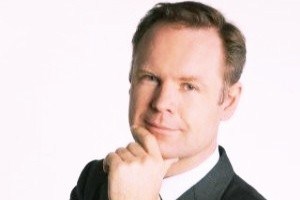
Erik Meijer of Deutsche Telekom
Digital Transformation World, organised in France by TM Forum earlier this month (May 14-16) included a fascinating glimpse behind the scenes of several telecom network operators that are tackling the task of becoming digital operators. Jeremy Cowan pulled rank to report from Nice.
In a conference session called “2020 Digital Operator – Vision to Reality”, led by the ever-informed Paul Hughes, Netcracker’s director of Strategy, there was an unusual degree of candour about the challenges that all transforming operators face.
Hughes pointed out that the role of the network operator has shifted and wondered if the panellists felt they were working with their partners to be central to the ecosystem that brings new services to market. Or are they, he asked, experiencing de-centralisation?
Shawn Mandel, chief digital officer at Canada-based Telus, replied: “In traditional B2B (business-to-business) our sales force isn’t used to selling these services. It’s a big challenge, and one we’re still working to overcome.”
Deutsche Telekom’s Erik Meijer, Strategy GPM for Group Innovation, had a positive metaphor for the change from physical to digital services. “You can only eat one burger at $1.99 and the margin is six cents. But you can play Kandy Krush 20 times. And the margin is higher.”
Is customer experience changing operators?
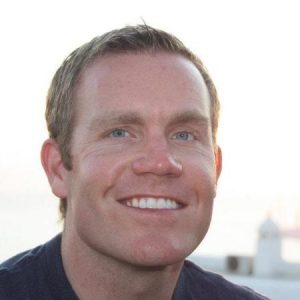
Paul Hughes
Another aspect of the partner-driven ecosystem that Hughes asked about is the changing role of customer experience. “Is it changing how you deal with your partners, and how your customers deal with you?”
According to the Deutsche Telekom spokesman, the operator is now Germany’s largest vendor of cinema tickets and fuel charging, so it understands about being part of new and wider partner ecosystems. “If you have a brand like Magenta, then use it.” (MagentaEINS is DT’s fixed and mobile subscriber loyalty scheme. Ed).
Reliance Jio’s special advisor, Steffen Roehn suggested to the many operators in the audience that they “recognise where the added value is for your customer. It’s not about, We have a new technology, how can we make money from it?”
Michael Lewrick, chief innovation officer at Swisscom Enterprise Customers BAI, added that how operators make money in future might need a Board-level mindshift. “It takes a lot of energy,” he commented.
How to get Board-level buy-in
One questioner from the floor asked Shawn Mandel: “You have a lot of legacy systems. How did you change? Was it incremental?”
To which the Telus executive replied with candour: “Our OSS/BSS (operations/business support systems) transformation isn’t as complete as we’d like yet. But front-end experience is the most important element. You can hitch your transformation wagon to the most important initiative in the company. That’s how we can even adapt to AI (artificial intelligence). We find the largest priorities in the business and hitch our wagon to it as part of the transformation.”
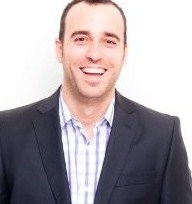
Shawn Mandel
Don’t start with the business’s problems though, said Reliance advisor, Roehn, and have two or three scenarios. Make sure it’s a secure network, which can be a challenge in India. “At times we offered free transport of 2-3Gb per person per day; we did this on purpose to stress our network and see where the problems were. We found most of the problems are not in functionality, it’s about making transactions very fast – less than 0.5 second to complete.”
Panellist Martin Bell, founder & CEO of Bell Ventures, raised the issue of Net Promoter Scores. “NPS is very important. Look at the customer journey and see what solutions you can build in-house to fix the problem areas,” he said. “Very often, I see AI is helping to find new solutions. It’s not about having data but about using it. It’s helping us with revenue per customer and the solutions may be adopting more of a platform structure or launching a new subsidiary.”
Kick in the face
Erik Meijer of DT sees Machine Learning (ML) as “another kick in the face”. The German network operator is competing for the best staff with the likes of Facebook and Apple, but the network has one particular advantage as he sees it. “We have the data that interests them.”
He also urges care in deploying these skills. “As your ML team is expensive be sure you know which problem you’re trying to solve, and work with relevant departments. Remember this is on top of their normal work.
Paul Hughes then sought the panel’s views on other digital transformation challenges.
Telus is finding the data supply chain is one. Said Mandel: “On-boarding data, curating it, managing data quantities, and grooming that process is where we spend a lot of our time.”
A questioner from Liquid Telecom, an independent data, voice and IP provider in eastern, central and southern Africa, asked the panel, “How do you handle role change for you teams?”
According to Telus, in the B2B space it’s an ongoing journey to educate sales teams. Mandel asked rhetorically, “How do you latch onto an initiative and do something with them, not something to them?”
Meijer recommended mixing older and younger people in the teams. “Get the Old School,” he said, “because they know how to ‘game’ the system within the company. When John (Legere) took over T-Mobile he went straight into the Call Centre to see how to fix problems. He can make it happen. He didn’t go into the Executive Offices first.
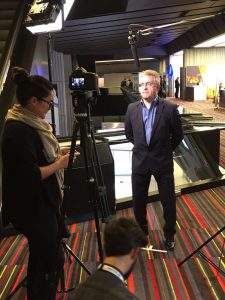
Jeremy Cowan
One questioner asked what the panel are doing to retain their team?
Meijer was very honest. “My best people I lose sometimes. I lose them graciously. Some to Facebook, some to Google. But I keep a good alumni network. If there are any top conferences and people want to go, I make sure they can. But I work with HR (human resources) on that.”
Steffen Roehn recommended letting people grow fast in the company. Engineers come to us not because we pay best but because we give them a smartphone and unlimited network usage – they test the network all the time. They are an invaluable tool.”
The author of this blog is Jeremy Cowan, editorial director of VanillaPlus and IoT Global Network
Comment on this article below or via Twitter @IoTGN

